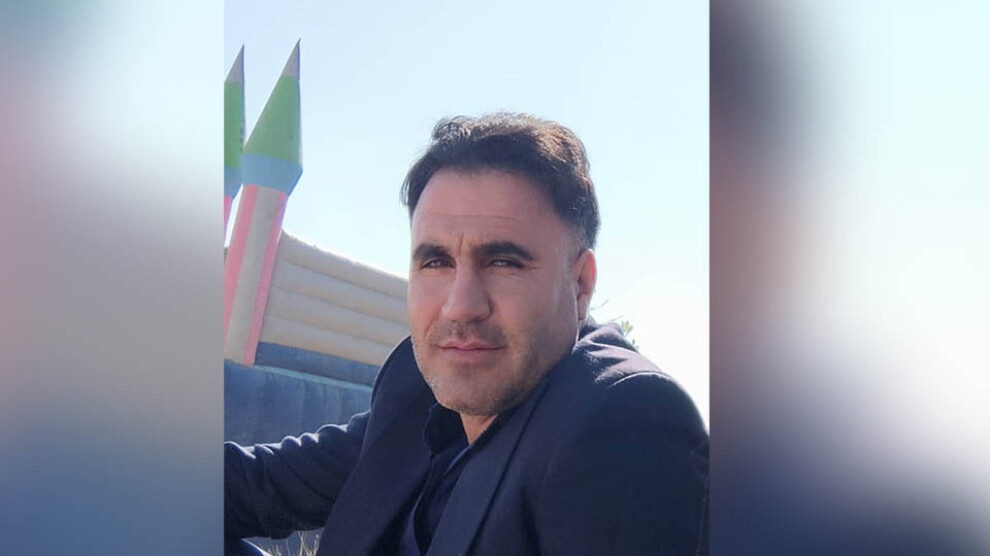Kurdish political prisoner transferred to solitary confinement ahead of execution in Urmia
A Kurdish political prisoner sentenced to death was transferred to solitary confinement in Urmia Central Prison on 16 April in preparation for his execution.
A Kurdish political prisoner sentenced to death was transferred to solitary confinement in Urmia Central Prison on 16 April in preparation for his execution.

Hamid Hosseinnezhad Heidaranlou, a Kurdish political prisoner sentenced to death, was transferred to solitary confinement in Urmia (Orumiyeh) Central Prison on 16 April in preparation for his execution, the Kurdistan Human Rights Network (KHRN) reported.
On Thursday, the prisoner’s family had a final visit with him for a few minutes in Urmia Central Prison while he was handcuffed and shackled, and he told his family that he was being held in solitary confinement and that he was at risk of being executed tomorrow morning.
Additionally, on 16 April, Esmaeil Hosseinnezhad Heidaranlou, Hamid’s brother, attempted suicide by taking a poisonous substance after learning of his brother’s transfer to solitary confinement and is reported to be in a critical condition.
Osman Mozayyan, the lawyer who represented Hosseinnezhad Heidaranlou during his appeal to the Supreme Court, also confirmed the news in an interview with KHRN, saying that the execution date has been set for Friday 18 April.
Mozayyan told KHRN that Branch Nine of the Supreme Court upheld Hosseinnezhad Heidaranlou’s death sentence on 9 April and officially notified his client, but despite preparations to file a retrial petition in the coming days, the political prisoner was abruptly moved to solitary confinement.
The lawyer added that the conviction and sentence were handed down despite documents and evidence indicating that Hosseinnezhad Heidaranlou was in Turkey at the time of a deadly armed clash that left several Iranian border guards dead.
Earlier, in a written defence submitted to the head of the Supreme Court, Hosseinnezhad Heidaranlou said he had been tortured in detention, denied access to legal representation and family visits, and insisted on his innocence. He claimed that the charges were fabricated as part of a security cover-up to divert attention from the authorities’ inability to identify the real perpetrators of the attack.
Hosseinnezhad Heidaranlou stated that he was in Turkey with his family on the day of the clash and that he had evidence, including an exit stamp in his passport. He also requested that border surveillance footage and the location data of his mobile phone be examined – requests that he said were ignored by the judicial and security authorities.
Arrest and Legal Proceedings
Hosseinnezhad Heidaranlou was arrested along with several Afghan nationals by border guards at the Chaldoran border on 13 April 2023 and taken to the Chaldoran Border Guards Detention Centre, where he was interrogated for several hours before his detention order was changed to bail.
However, the bail was not accepted as an arrest warrant was issued at the request of the Ministry of Intelligence of the Islamic Republic of Iran.
He was then transferred to the Ministry of Intelligence’s detention facility in Urmia, West Azerbaijan Province.
A source had previously told the KHRN that Hosseinnezhad Heidaranlou had been held in the ministry’s detention facility for 11 months and 10 days, during which time he was subjected to severe physical and psychological torture in order to force him to confess to his “involvement” in an armed clash between PKK forces and Iranian border guards, a confrontation which resulted in the deaths of eight border guards.
The source further stated that throughout his detention, Hosseinnezhad Heidaranlou was only allowed two brief phone calls with his family and was denied visits and access to legal representation.
For approximately eight months, he was subjected to intense pressure and torture by intelligence interrogators and the investigating officer, identified as Estiri. Eventually, he was forced to sign pre-written statements prepared by interrogators, despite being illiterate and unable to read the contents.
During interrogations and court hearings, Hosseinnezhad Heidaranlou, who was denied the right to appoint his own lawyer due to objections from the Ministry of Intelligence, denied all charges and insisted that his confessions had been extracted under torture.
He also provided documentary evidence that he was travelling to Turkey with his family on the day of the armed clash between PKK fighters and Iranian border guards. However, the Islamic Revolutionary Court of Urmia, presided over by Judge Najafzadeh, rejected the evidence and sentenced him to death on charges of “armed insurrection” (baghi) through alleged membership of the PKK, in a hearing that lasted only a few minutes.
It was reported that in a fabricated case against the political prisoner, the Ministry of Intelligence claimed – without providing any verifiable evidence – that he had developed animosity towards the border forces because of the killing of his brother-in-law, Mostafa Nouri, by Iranian border guards in 2015 while he was engaged in cross-border trade.
As a result, he was accused of collaborating with PKK forces during the clashes between them and the border guards. Hoseinnezhad Heidaranlou, born in 1985 and a father of three from the village of Segrik in Chaldoran, West Azerbaijan Province, had worked as a fuel porter and border trader in recent years.